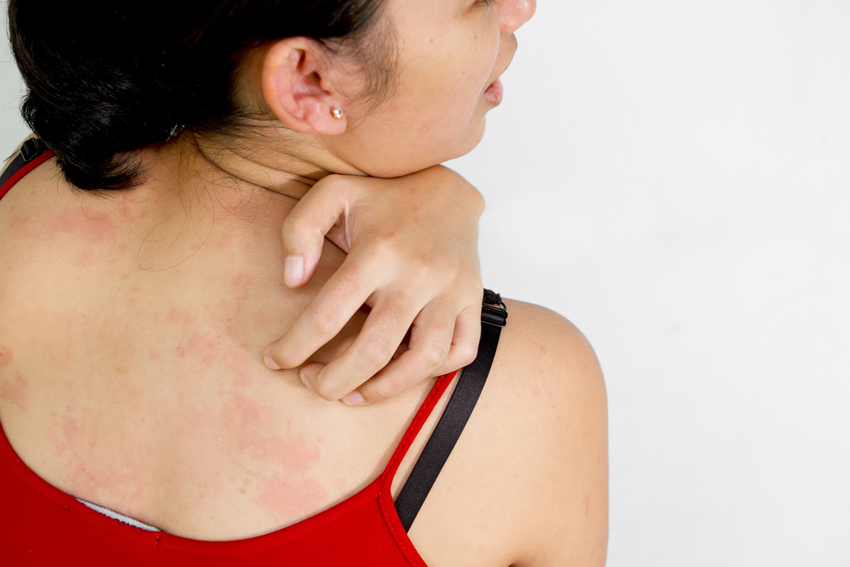Silencing Neurons Could Provide Itch Relief

Itch photo via Shutterstock
Okay, so with research about conditions like cancer and Alzheimer’s constantly circulating, itchy skin may not seem like the most pressing health concern out there. But as anyone with eczema, allergies, sensitive skin, or even just a batch of mosquito bites can tell you, constant itching is no laughing matter. That’s why Harvard Medical School (HMS) researchers are looking into ways to scratch the itch once and for all.
In the study, HMS neurology professor Clifford Woolf built upon his previous research to find a way of selectively targeting itch-sensing neurons. Woolf had already found that a QX-314, an active ingredient in painkillers that was thought to be unable to permeate cell membranes, silenced pain when combined with capsaicin, the ingredient that gives chili peppers their heat, because capsaicin opened the pores in pain-related neurons enough for the drug to enter.
In the new study, Woolf used a similar tactic. He and his team silenced certain neurons in mice to determine, first, that itch neurons are distinct from pain neurons, and that all itch is not the same. They found that two itch-causing substances, histamines and chloroquine, cause different itch-detecting neurons to activate, which explains why antihistamines provide relief from allergen-caused hives but not most chronic skin conditions. By confirming that only certain neurons cause the urge to scratch at any given time, Woolf realized that applying a topical solution of QX-314 could selectively silence the right itch-causing factors. A report from HMS quotes Woolf:
“If you have itch, a topical solution of QX-314 on your skin should go only into the nerve fibers that are causing the itch because in order to produce the itch, the itch channels have to be active,” said Woolf. “It won’t produce any local blockade of pain, but you get an itch cream that is only local and produces only a local anti-itch effect.”
Woolf and his research partner, HMS neuroscience graduate student David Roberson, are now looking into ways to use QX-314 as a practical, accessible drug. And while irritated skin may pale in comparison to many life-threatening diseases, it’s undeniable that providing relief for those suffering from chronic discomfort would be a huge improvement in quality of life, and that’s something everyone deserves.


